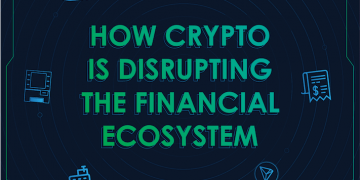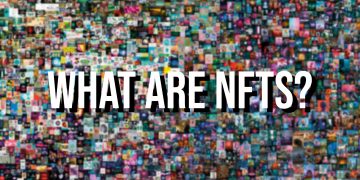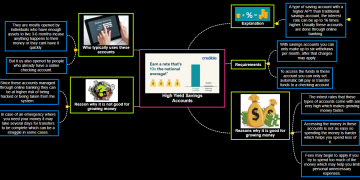A digital money trade exchanged asset (ETF) is an asset comprising digital forms of money. While most ETFs track a record or a bin of resources, a cryptographic money ETF tracks the cost of at least one advanced tokens. In light of financial backer deals or buys, the offer cost of digital money ETFs vacillates consistently. Very much like normal stocks, they are additionally exchanged consistently.
How Does a Cryptocurrency ETF Work?
Digital money ETFs give a few advantages to financial backers, for example, essentially lower cryptographic money possession expenses and rethinking of the lofty expectation to absorb information needed to exchange digital forms of money.
There are two sorts of digital currency ETFs:
The principal type is upheld by actual digital currencies. The venture company dealing with the asset makes the acquisition of digital currencies, and responsibility for coins is addressed as offers. When buying partakes in the ETF, financial backers will in a roundabout way own cryptographic forms of money. Subsequently, proprietors can acquire openness to cryptographic forms of money without the going with cost and hazard of possessing them inside and out.
The subsequent sort is an engineered variation that tracks digital currency subordinates like prospects agreements and cryptographic money trade exchanged items (ETPs). For instance, numerous ETFs proposed to the U.S. Protections and Exchange Commission (SEC) track costs of bitcoin fates contracts exchanged at the Chicago Mercantile Exchange (CME).
The primary digital money ETF, the ProShares Bitcoin Strategy ETF (BITO), began exchanging in October 2021. This is an ETF that tracks bitcoin fates prices.12
The ETF share value copies value developments of subordinates, rather than costs of real digital currencies. Consequently, the cost of offers in a given cryptographic money ETF ascends with an expansion in prospects contract costs. It decays with a relating decline. Very much like different subsidiaries, engineered digital money ETFs convey added hazard in light of the fact that their tasks may not forever be straightforward.
Administrative Status of Cryptocurrency ETFs
For digital money devotees, ETFs are the sacred goal that will support liquidity and the reception of digital currencies for speculation purposes. As far back as 2014, around five years after bitcoin (BTCUSD) initially started exchanging at a trade, the Winklevoss twins documented an ETF proposition for the cryptographic money with the SEC.
The organization dismissed their application. From that point forward, there has been a whirlwind of utilizations from different venture companies—including one set up by the Winklevoss twins, who applied again this year—trying to benefit from bitcoin’s value instability. In 2021 alone, the SEC recorded receipt of something like 12 applications.
The SEC clarified its interests in a January 2018 letter and clarified the reasoning for dismissing ETF applications. Among its interests are the shortfall of straightforwardness at digital currency trades (which set the cost of individual tokens), the potential for market control, and low liquidity levels in cryptographic money markets.
The circumstance in cryptographic money markets has changed since the organization distributed its letter. Exchanging volumes at trades have increased. The general market cap for digital forms of money has outperformed $2 trillion. (It had arrived at a pinnacle of $800 billion when the SEC distributed its letter.) North America’s greatest digital money trade, Coinbase Global Inc. (COIN), is presently a public substance, and, as referenced above, the principal digital money ETF began exchanging in October 2021.
There has additionally been a top-down restructuring at the office’s rudder. Previous SEC Chairman Jay Clayton was an old hand who was viewed as antagonistic to digital forms of money. In 2021, he was supplanted by previous Commodity Futures Trading Commission (CFTC) boss Gary Gensler, who showed a course in blockchain and digital forms of money at the Massachusetts Institute of Technology. Gensler’s arrangement has revived expectations for endorsement of a Bitcoin ETF, yet he has said that he concurs with his archetype’s evaluation and perspectives on crypto markets.
Advantages of Cryptocurrency ETFs
Digital currency ETFs are a beginning resource class, and given the administrative vulnerability, their market is as yet being characterized. Yet, they may be perhaps the best instrument through which to possess digital currencies. A portion of the advantages of claiming shares in cryptographic money ETFs are as per the following:
Maybe the greatest advantage of digital money ETFs is that they give openness to the crypto without the extra costs of proprietorship. Actual responsibility involves numerous extra costs. For instance, there are guardianship accuses related to digital currencies. Secure advanced wallets to store-bought digital forms of money likewise charge a yearly expense. These energize add to a decent amount. Digital money proprietorship likewise accompanies other secret charges, for example, exchange and organization expenses. Digital money ETFs rethink these costs onto ETF suppliers.
Shares in digital currency ETFs offer openness to a quick rising resource class for a portion of the genuine expense to buy crypto. In recent years, the cost of digital currencies—particularly bitcoin—has soared. They have to a great extent become out of reach to the normal financial backer. A digital currency ETF is a reasonable option for financial backers wishing to place cash into the resource class. Think about the accompanying circumstance: The cost of bitcoin began 2021 at $29,405.12 and expanded to a pinnacle of $63,569 in April, prior to withdrawing its benefits to $35,045 before the finish of June.7 During this time, the cost for shares in Canada’s Purpose Bitcoin ETF (BTCC-B.TO) went from $10.09 to $6.44. Considerable interest in the ETF would have gotten critical increases for a trader.
Digital currency language, saturated with its innovative underpinnings, has stayed a diligent road obstruction to crypto reception. It is hard for normal financial backers to get a handle on the degree and working of cryptographic forms of money. Financial backers who are inexperienced with innovation might find crypto-talk, for example, dividing and blockchain, a genuinely laden expectation to learn and adapt. Putting resources into a cryptographic money ETF reevaluates the expectation to absorb information to examiners.
Cryptographic forms of money have been hacked more than once since they were sent off, prompting a central issue over the security of the incipient resource class. Guaranteeing security for cryptographic forms of money can be a difficult task for individual financial backers, who may not be acquainted with their functions. A digital currency ETF re-appropriates security capacities to the suppliers of these ETFs.
There are in excess of 1,800 digital forms of money accessible in exchange markets. The foundation to trade these tokens is lacking at this point. For instance, a few tokens are accessible on specific cryptographic money trades, while others are not. There are additionally massive expenses related to the acquisition of these tokens. Digital money ETFs empower financial backers to expand without causing the expenses for every token.
Options in contrast to Cryptocurrency ETFs
While there are no cryptographic money ETFs exchanging U.S. showcases other than the previously mentioned ProShares Bitcoin Strategy ETF, financial backers can place their cash into various other ETF-like items for crypto openness. The nearest item to a digital currency ETF item is the Bitcoin Investment Trust (GBTC). The trust is a shut-end store that takes after an ETF—it possesses bitcoins in the interest of financial backers, and its portions exchange over-the-counter (OTC) markets.
However, Grayscale’s Bitcoin Investment Trust isn’t an ETF. It is open just to venture companies, authorized financial backers, or high-total assets people (HNWIs) and isn’t available to a standard crowd. GBTC has a high least speculation sum, and each acquisition of its portions is joined by a lock-up period for investors.
As on account of ETFs, the asset’s support, Grayscale Investment Trust, charges a yearly expense. In any case, the expense—equivalent to 2% of the asset’s resources—is altogether higher than that for most ETFs.
GBTC share costs are additionally inclined to unstable swings, similar to its fundamental security. The offers additionally exchange at a critical distinction from bitcoin’s real cost. For instance, during the 2017 run-up in bitcoin costs, financial backers were paying a premium of 100 percent over real bitcoin costs to claim GBTC shares.
There are additionally different items, like GBTC, accessible on the lookout. For instance, the Bitwise Ethereum Fund and the Bitwise Uniswap Fund track the costs of Ethereum (ETHUSD) and the Uniswap token, individually. It is critical to recall that these assets have comparative elements to Grayscale’s items: They exchange at huge value uniqueness to the genuine token, they are simply open to certifying financial backers, and they require a high least venture amount.
Putting resources into organizations that hold bitcoin on their accounting report is one more method for putting resources into digital forms of money without direct proprietorship. A few freely recorded organizations have become possessions for bitcoin. For instance, MicroStrategy Inc. (MSTR) claimed 114,042 bitcoins bought at a normal cost of $27,713 as of September 30, 2021.12 The organization’s portion cost has bounced by generally 240% since it previously declared the buy-in August 2020, without a critical change in its business prospects.
This has driven a few spectators to hypothesize that the leap in its portion cost is connected not to its engaging quality as an organization but rather because of its bitcoin holdings.
Electric car maker Tesla Inc. (TSLA) initiated the acquisition of the digital currency in 2021 and claims 42,902 bitcoins. Other openly recorded organizations with bitcoin on their accounting reports are Galaxy Digital Holdings Ltd. (BRPHF) and Square Inc. (SQ).
While these organizations hold bitcoin on their monetary records, their principal business is somewhere else. Tesla makes electric vehicles, and Square is an installment administrations organization. For those keen on a more focused openness to organizations related to the crypto business, Bitwise Investments has gathered supplies of conspicuous freely recorded organizations related to the business in its Bitwise Crypto Industry Innovators ETF (BITQ). Remembered for the asset are names like digital money trade Coinbase and Riot Blockchain Inc. (RIOT).
Some venture companies are relying upon financial backer excitement for blockchain, the fundamental innovation for most cryptographic forms of money, and have sent off assets with portions of organizations that use blockchain or are engaged with the innovation. Instances of such assets are the Amplify Transformational Data Sharing ETF (BLOK) and the Siren Nasdaq NexGen Economy ETF (BLCN).














































